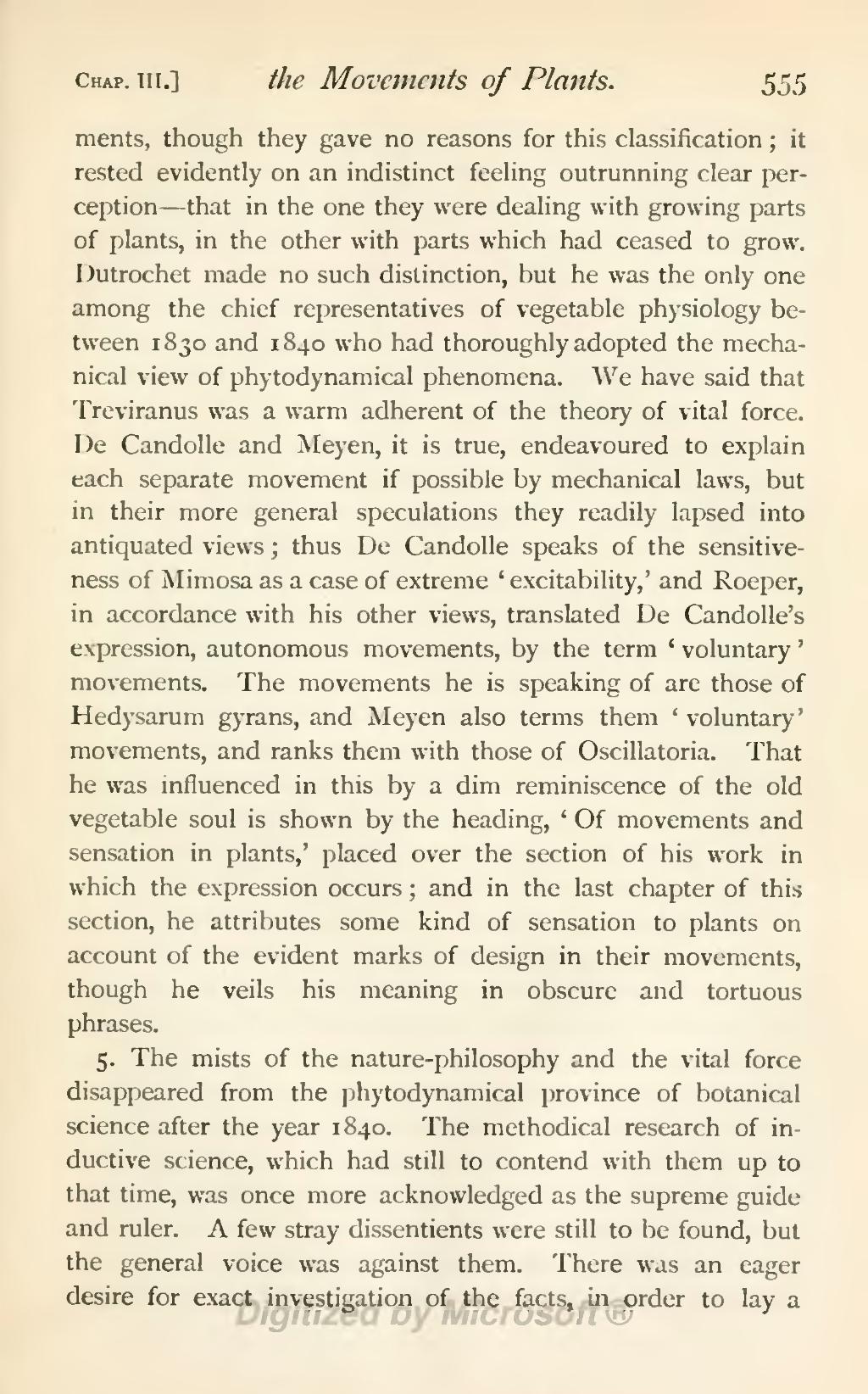merits, though they gave no reasons for this classification; it rested evidently on an indistinct feeling outrunning clear perception that in the one they were dealing with growing parts of plants, in the other with parts which had ceased to grow. Dutrochet made no such distinction, but he was the only one among the chief representatives of vegetable physiology between 1830 and 1840 who had thoroughly adopted the mechanical view of phytodynamical phenomena. We have said that Treviranus was a warm adherent of the theory of vital force. De Candolle and Meyen, it is true, endeavoured to explain each separate movement if possible by mechanical laws, but in their more general speculations they readily lapsed into antiquated views; thus De Candolle speaks of the sensitiveness of Mimosa as a case of extreme 'excitability,' and Roeper, in accordance with his other views, translated De Candolle's expression, autonomous movements, by the term 'voluntary' movements. The movements he is speaking of are those of Hedysarum gyrans, and Meyen also terms them 'voluntary' movements, and ranks them with those of Oscillatoria. That he was influenced in this by a dim reminiscence of the old vegetable soul is shown by the heading, 'Of movements and sensation in plants,' placed over the section of his work in which the expression occurs; and in the last chapter of this section, he attributes some kind of sensation to plants on account of the evident marks of design in their movements, though he veils his meaning in obscure and tortuous phrases.
5. The mists of the nature-philosophy and the vital force disappeared from the phytodynamical province of botanical science after the year 1840. The methodical research of inductive science, which had still to contend with them up to that time, was once more acknowledged as the supreme guide and ruler. A few stray dissentients were still to be found, but the general voice was against them. There was an eager desire for exact investigation of the facts, in order to lay a
